During the spring and summer, our coop is overflowing with freshly laid eggs…so many eggs!
As an experienced chicken keeper, I know that our wealth of eggs won’t last forever, and by late-fall, all of our hens’ efforts tend to take a hiatus, and it’s like they go into an egg-laying hibernation.
Once you have owned chickens for a time, you will become aware of your chickens’ laying habits. Not all chickens stop laying in the winter months, but in my experience, most of them do. When this happens, we homesteaders are left to fend for ourselves.
What if instead of waiting for the “no egg months”, we prepared for them?
One of the best ways to preserve a large number of fresh eggs is called water glassing. I know it sounds more like an art and craft project, but it is actually a historical way to preserve your fresh eggs.
If you’re curious about different ways to preserve eggs, in this video (below), I compare/contrast water glassing eggs, dehydrating eggs, and freezing eggs. Check it out if you’re curious about my discoveries on the three types of egg preservation!
What is Water Glassing?
Water Glassing is an old-fashioned method of preserving farm fresh eggs that dates back to the 1800s. Back then, it was common to use sodium silicate to make water glassing solutions. Sodium silicate is a type of concrete sealer that has many different uses; including being the original preservation item for water glassing eggs.
Today, calcium hydroxide, better known as pickling lime, is more commonly used to make water glassing solutions. Pickling lime is a white powder that was originally used in old pickle recipes. I personally prefer to use pickling lime because it is a more natural and less-sketchy-chemical option than the older use of sodium silicate.
NOTE: there are different types of lime out there, and only food-grade pickling lime should be used for water glassing. You can usually find pickling lime in the canning equipment section of nearby stores that sell canning equipment or you can purchase it online.
Both water glassing solutions are mixed in a container where eggs are then submerged. This process is used to seal the eggshells to prevent bacteria from entering the egg. Water glassing eggs is a preservation method that is used to store fresh eggs for an extended period of time.
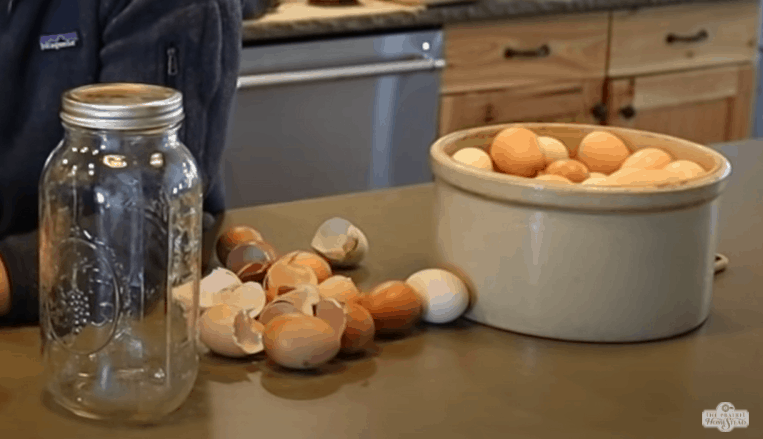
What Eggs Can Be Water Glassed?
Any type of poultry egg can be preserved using the water glassing method. The eggs must be fresh, clean of any debris, but unwashed (unwashed is important!). You cannot use store-bought eggs for water glassing because eggs from the store have been washed and bleached, which destroys the eggs bloom coating.
What is the bloom coating and why is important?
Some folks don’t realize that eggshells are porous, meaning they are made up of tons of little pores. The bloom is the outer coating that protects the egg from air and bacteria entering through these pores. Washing your eggs will destroy the bloom coating, which will allow the lime to enter the egg during the water glassing process.
The bloom coating is sealed in place by the water and lime mixture during water glassing, leaving you with eggs ready for storage in your pantry. No bloom coating means no good when water glassing eggs.
Are Water Glassing Eggs Safe?
Water glassed eggs that have been submerged in a lime and water solution are safe to consume. Your water-glassed eggs should be washed well before using them because ingesting pickling lime is not good for you. One thing you should look out for are cracks in any of your eggs. Even the smallest crack can contaminate an entire batch of water glassed eggs.
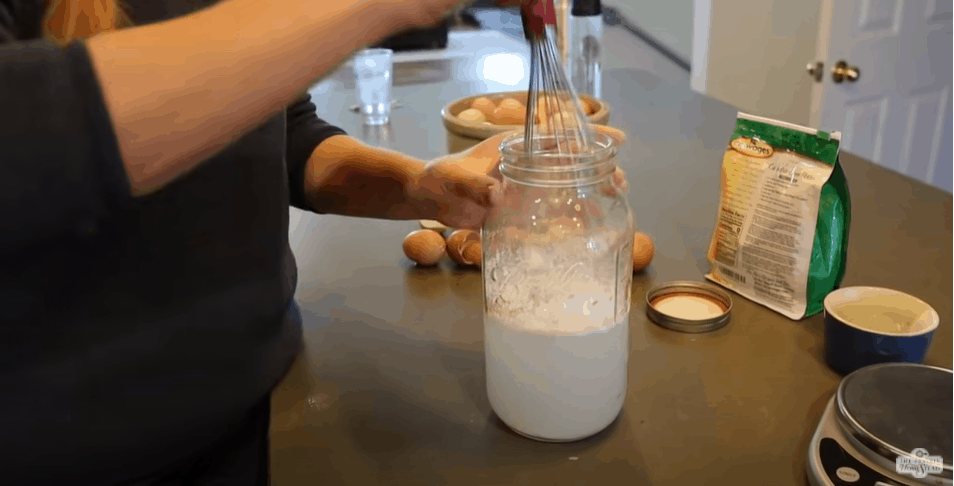
Materials Needed For Water Glassing Eggs
Glass Jars or Food-Grade Bucket – The size of the container depends on the number of eggs you plan to preserve. Keep in mind that 1 quart of water glassing solution will cover about 15 chicken eggs.
Pickling Lime (Calcium Hydroxide) – This type of lime can sometimes be found with canning and preserving equipment in stores, or you can always look online.
Note: Sodium Silicate is still available to use for water glassing eggs. My instructions below are for the use of pickling lime which is more commonly used and it is my preferred method for water glassing eggs.
Water – Your water needs to be chlorine-free and fluoride-free. If you have good well water, there are no worries, but if you live in a city where fluoride is an additive, you can boil your water. You can also buy distilled or natural spring water from the store to be safe.
Eggs – Any type of fresh, unwashed, clean eggs will work for water glassing.
Note: You do not have to collect all your eggs the same day you make the water glassing solution. You can add eggs as you gather them.
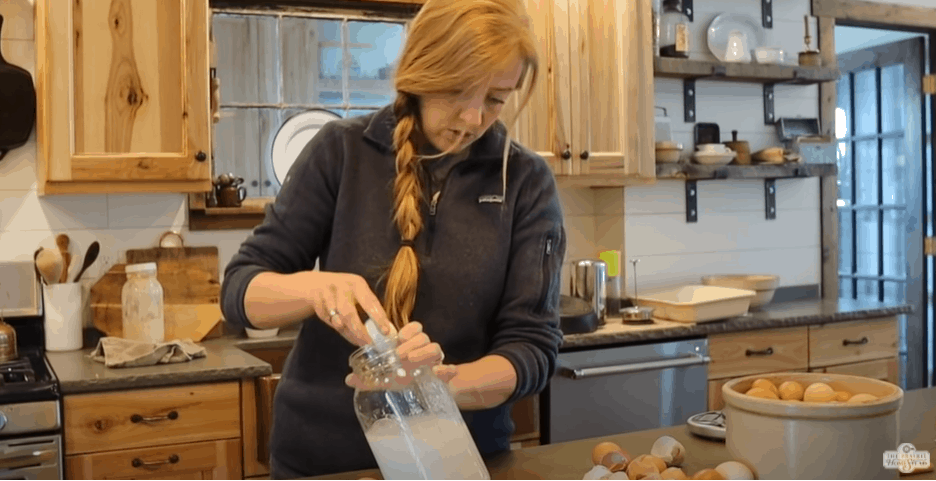
How To Water Glass Eggs
Ingredients:
- Airtight Container (Glass Jar or Food Grade Bucket)
- Kitchen Scale (For Measuring Pickling Lime)
- Pickling Lime
- Water (Natural or Distilled: must be chlorine-free and fluoride-free)
- Eggs (Fresh, Clean, Unwashed)
Instructions:
Step 1: Mix Water and Pickling Lime (1 quart water to 1 ounce lime ratio)
In your chosen container, add a ratio of 1-quart water and 1-ounce lime. (This ratio is going to be used no matter how much of the solution you make.) You will want to make sure you have enough solution to cover your eggs by 2 inches. Mix the water and lime until completely dissolved.
Step 2: Gently Add the Eggs
You will gently place your eggs pointy side down and fat side up (aka Air Sack Side Up) in the lime-water solution. If one egg cracks, it will destroy the entire batch. SO DO THIS GENTLY!
Step 3: Secure the Lid and Store
Secure the lid on your air-tight container and then store your water glassed eggs in a cool and dark place until you need some farm-fresh eggs!
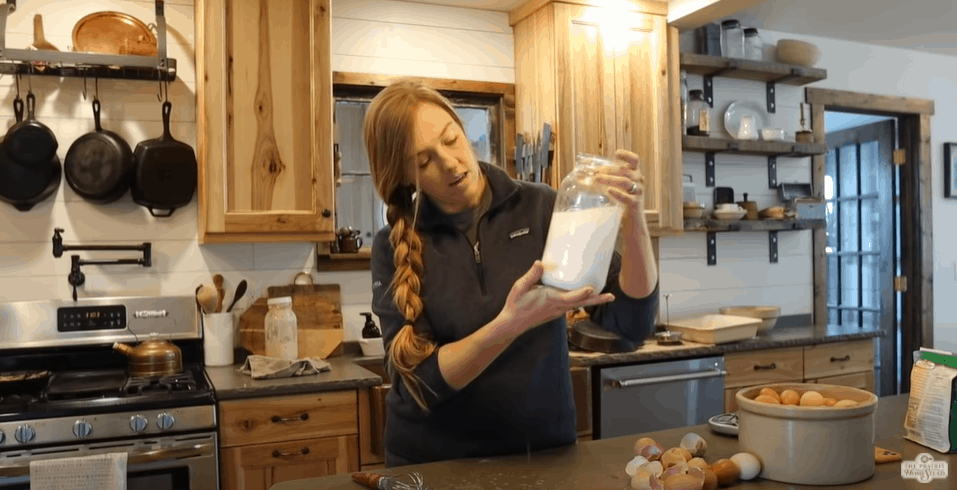
Using Your Water Glassed Eggs
Water glassed eggs can be used exactly how you would use eggs just collected from the coop, except if you are boiling your eggs. Water glassed eggshells have been completely sealed, so you will want to make a small hole in the shell to prevent exploding when hard-boiling your eggs.
When you are ready to use your preserved eggs, take them out of your container and wash them well. You do not want any lime water left on the eggs you are using. If you know that you will need eggs later in the week, you can pull some out and store them in the refrigerator for a few days.
How Long Do Water Glassed Eggs Last?
Fresh eggs with the bloom intact can be stored on the counter for about a month and refrigerated for up to six months. Eggs that are preserved with the water glassing method can last up to a year or more. The water glassing method seals the eggshell, keeping them fresh just like eggs just laid.
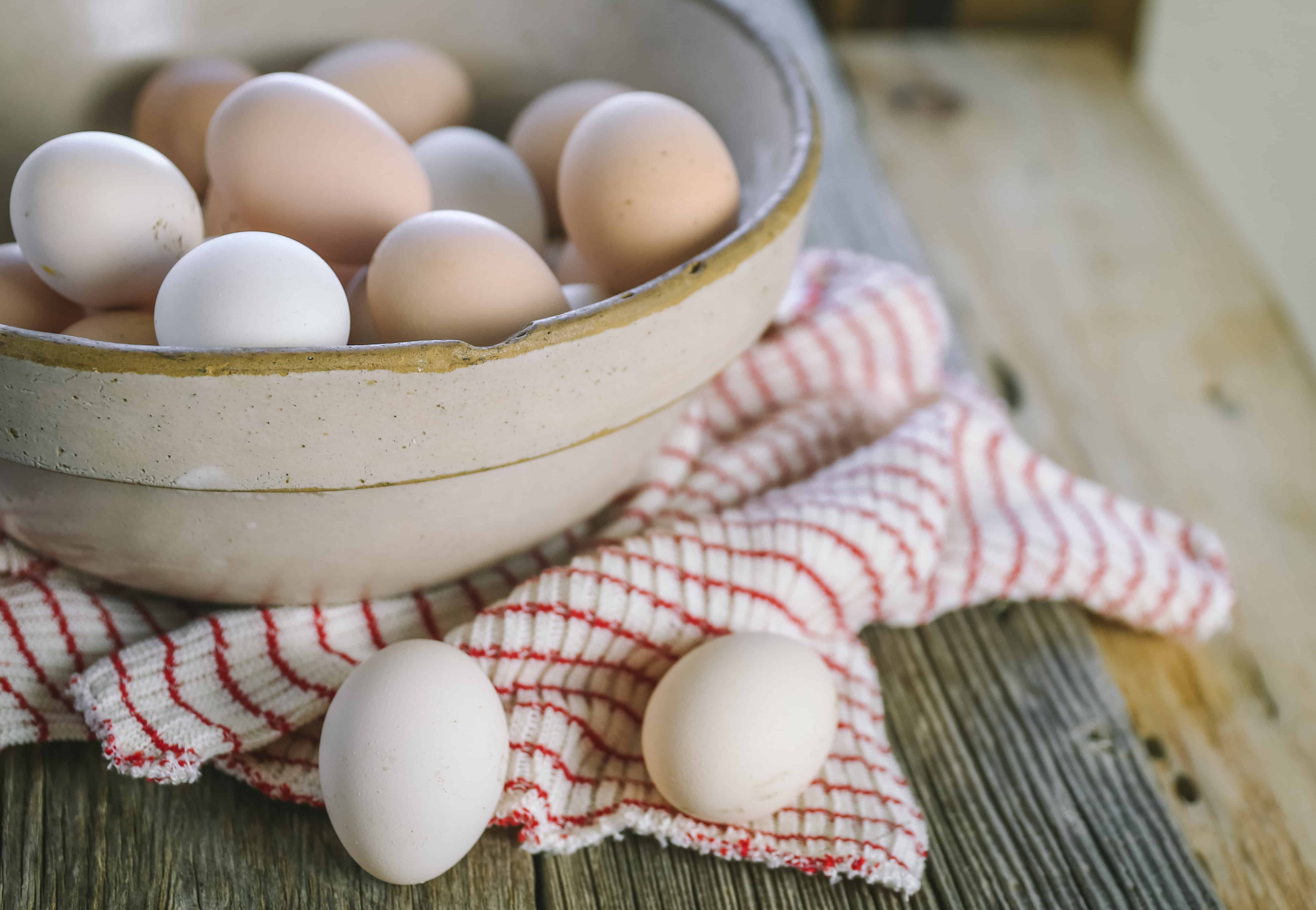
What If I Don’t Have Chicken Eggs?
No chicken eggs, no problem!
Any type of poultry eggs can be preserved using the water glassing method. If you raise ducks or quails, their eggs will work too. Just keep in mind that duck eggs are larger and will need more space when choosing your container for water glassing!
No farm-fresh eggs?
Local farmers all over the country are selling farm fresh eggs, you will likely see a sign hanging at the end of their drive or an advertisement somewhere. If you find a local farm nearby selling eggs, stop and talk to the farmer. Ask them about their collecting practices and if you could purchase unwashed, clean eggs from them.
Need help finding local food sources? Check out my article on How to Find Local Food Sources to get some tips on how to connect with your local farmers.
When Should You Collect Your Eggs?
As mentioned earlier, you can make your water glassing solution and continuously add eggs as you collect them. If your goal is to prep for your chicken’s winter laying hiatus, I recommend starting in late spring. This is the time of year we start getting flooded with eggs!
Before you start collecting eggs for preservation, you should consider the number of eggs you use in your daily life. You will want to keep in mind that you will be collecting your eggs for both current use and collecting eggs for preservation.
If you don’t have many chickens and you need to collect for use during the summer months, how many eggs will that leave you for preserving? If you are being flooded with more eggs than you can use, decide carefully the balance for which eggs to keep for eating now and which to preserve with water glassing.
Maybe Water Glassing Eggs Isn’t Right For You…
Maybe you have decided that water glassing eggs isn’t the right preservation method for you. Well that’s totally okay. There are other ways for you to preserve your eggs. Two different methods for preserving eggs that I have tried before are freezing and dehydrating.
To learn more about my experience with these two different methods of preserving eggs you can read How to Freeze Eggs and How to Dehydrate Eggs.
Water Glassing Eggs as a Preservation Method: Final Thoughts
Are you ready to start preserving eggs for those short winter days when there are no eggs to be found?
Water glassing requires little time, very few supplies, and is a simple way to preserve your extra eggs for long-term storage. If you have made the decision that water glassing is right for you, just remember only fresh, unwashed eggs will do.
Preserving eggs for long-term storage is not a new activity in the homestead kitchen. All of the different methods and instructions can leave you a bit overwhelmed or confused. If you are looking for help overcoming your egg preserving confusion, listen to Taking the Confusion Out of Egg Preservation from my Old-Fashioned on Purpose Podcast.
More Articles about Preserving Your Fresh Eggs:
- Eggs: To Wash or Not to Wash?
- Do You Have to Refrigerate Eggs?
- 50+ Ways to Use Extra Eggs
- What are Those Spots in my Farm-Fresh Eggs?
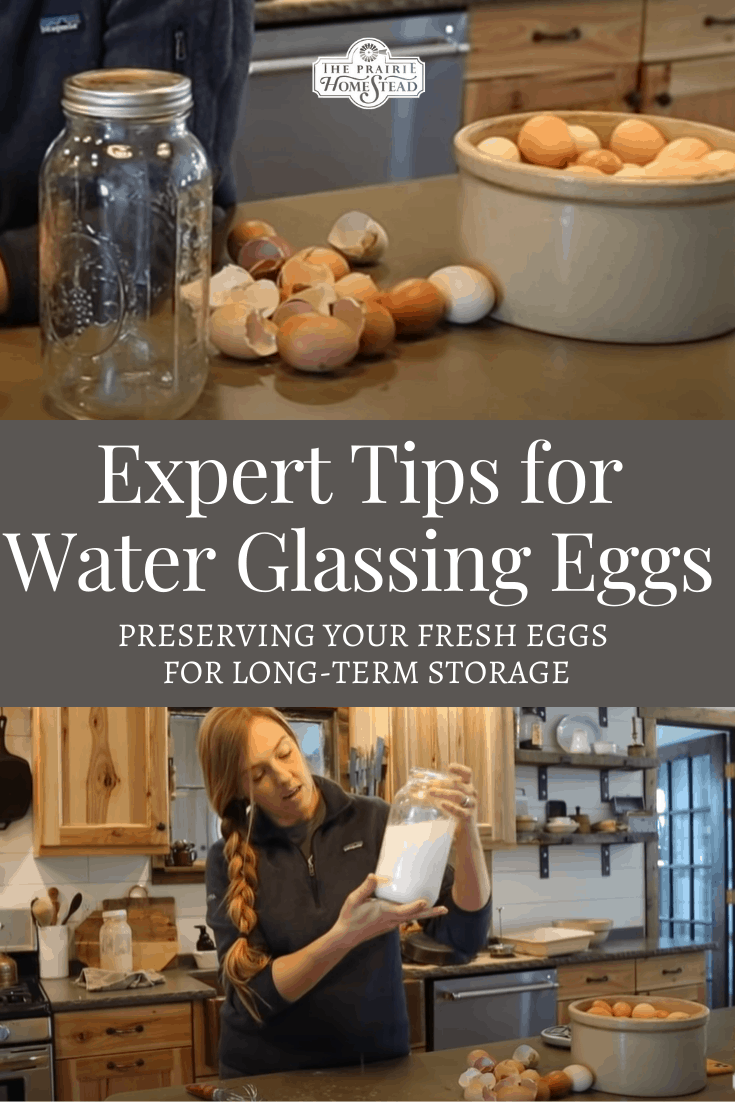
The post Water Glassing Eggs: How to Preserve Your Fresh Eggs for Long-Term Storage appeared first on The Prairie Homestead.
Via Gardening http://www.rssmix.com/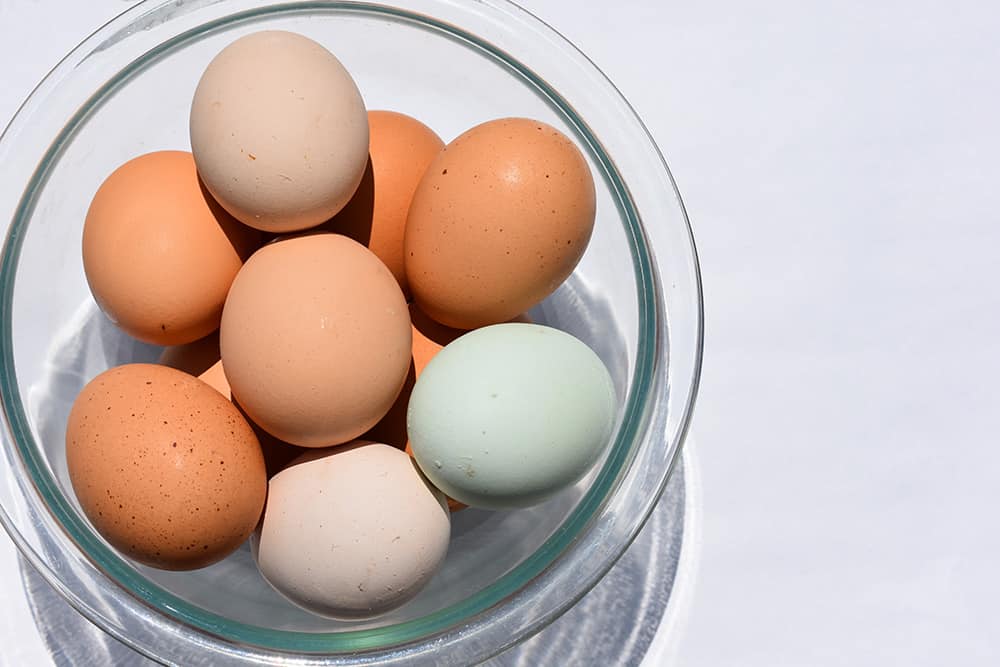
No comments:
Post a Comment